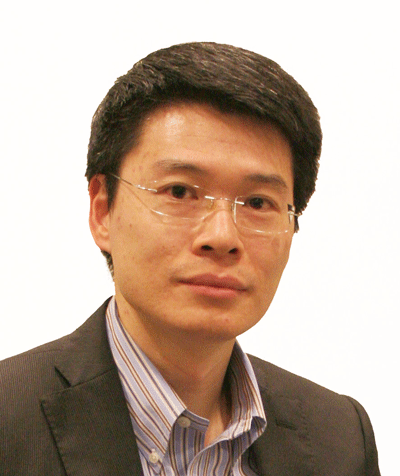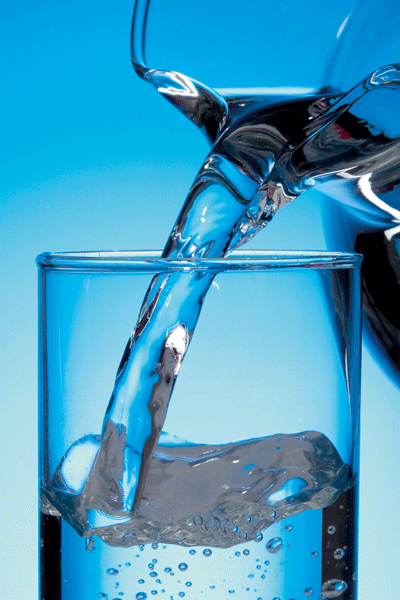www.hkah.org.hkExhausted from back-to-back travel, all-nighters in the office and lavish client dinners, executives are embracing the notion of living better, with dietitians, wellness retreats and detox spas seeing a surge in the number of corporate clients eager to tackle weight concerns, high blood pressure and cholesterol levels.
Como Shambhala (www.comoshambhala.como.bz), which operates several leading wellness retreats around the region, has seen the number of executives signing on to its stress management and cleansing programmes more than double in the past year. “People are increasingly looking at better ways of spending their money in order to live a better quality of life as they get older,” says Monica Barter, Como Shambhala’s group operations director.
Alan Siu, manager and lifestyle counsellor at the Lifestyle Management Center at the Hong Kong Adventist Hospital (www.hkah.org.hk), which offers the city’s only residential wellness programme, says the most common health problems among commuting executives include insomnia, stomach ulcers, gout, high blood pressure, diabetes and obesity.
In the age of convenient and cheap fast food and hectic corporate and social calendars, diet and stress are key health concerns.
Weighty issues
Sylvia Lam, senior dietitian at Qualigenics, a health promotion programme supported by the Chinese University of Hong Kong (www.qualigenics.com), says her corporate clients are typically 10 to 50 percent above their ideal weight.
“Eating well is challenging at the best of times for executives, who need to focus on the quality and quantity of their food intake. But it is even more difficult for executives who travel frequently as jet lag and hanging around at airports and on planes can trigger them to eat more. They might find themselves consuming five meals a day instead of three,” says Lam.
To help clients shed weight in the long term, Lam designs an eating plan around their lifestyle, suggesting menus for home and offering advice on how to negotiate large buffet hotel breakfasts and tackle multi-course Chinese banquet dinners in work settings.
Some of her recommendations include limiting the intake of alcohol to no more than two units a day for men and one unit a day for women, staying clear of sweetened soft drinks and juices, exercising portion control by always leaving some food on the plate, and ordering in advance low-fat and low-sodium meals for plane journeys.
“People should not be looking to make massive lifestyle changes overnight. Rather, they need to adjust to a new lifestyle and way of eating little by little,” she says.
Stress test
Stress is a key trigger for disease, with excessive travel and jet lag exacerbating the anxiety felt by road warriors who are often already struggling to thrive in today’s pressure-cooker business environment. “Stress can destabilise the rhythm of the body, upset the metabolic rate and impact the production of hormones and enzymes,” says Siu.
Anxiety can also boost the level of acidity present in the body, compromise its ability to detoxify and allow potentially carcinogenic toxins to remain longer in the body, he adds. A US study found that a group of mice kept under stressful conditions were far more likely to develop tumours and illnesses than their counterparts who resided in a normal environment. “The human body is the same. It is like a machine. If one screw becomes loose and is not performing right, it can cause a whole range of problems.”
Unhealthy eating and high stress have been linked to colorectal, stomach and breast cancers, three of the five leading cancer killers in Hong Kong in 2008. Cancer accounted for 30 percent of all deaths in the city that year, according to the Hong Kong Cancer Registry.
Changing lifestyles in Asia are expected to cause cancer rates in the region to soar. Some estimate that by 2020, more than half of the cancer cases in the world will occur in Asia. It was no coincidence that the World Cancer Congress took place in Shenzhen, China last year, the first time the event has visited Asia. The biennial meeting is held by non-governmental organisation the International Union Against Cancer.
“Stress can induce a series of hormonal changes which can, in particular, stimulate the growth of breast cancer cells. It may also contribute to the recurrence of cancer, especially as it weakens the immune system and heightens the chance of cancer returning,” explains Dr Hung Wai Ka, specialist in general surgery at the Hong Kong Adventist Hospital.

The archetypal western diet, rich in fatty and processed foods and low in fibre, has been associated with colorectal cancer, while excessive intake of alcohol, salt and smoked foods has been linked to stomach cancer, according to Dr Hans Schräder, executive medical director at Matilda International Hospital.
“There is a combination of factors for cancer. Some people seem very anxious about something that is not actually there while others are totally ignorant. What’s important is to have a healthy balance, understand the risks of cancer and devise a plan around the appropriate health checks and screenings,” he says.
In good company
It isn’t just individuals who are waking up to the health toll of hectic travel. Corporations, too, understand the implications of an unhealthy workforce and are launching wellness initiatives, health assessments and health checks for employees. Lynne Fung, general manager of communications and business development at Matilda International Hospital, says organisations are broadening the scope of their wellness initiatives to address physical, emotional and social health.
“The impact of employees being out of the office can be significant,” says Hayden Majajas, global financial services group UBS’ head of diversity and inclusion in Asia- Pacific. “Any firm, be it an SME or a large global conglomerate, needs to be concerned about the health and wellness of employees. It makes good business sense.”
UBS has in recent years launched a gamut of health and wellness efforts, from health talks to flashcards that help employees make better eating decisions and the formation of lunchtime jogging groups. The company has seen the total number of sick days taken by employees in Hong Kong fall by almost half in the past year, despite an increase in the number of new employees.
The prevention of disease, doctors say, ultimately requires a multifaceted approach, one where a balanced diet and regular exercise are crucial factors. Asians should ideally stay under a Body Mass Index (BMI) of 23, while westerners should have a BMI of less than 25, Schräder says. “People do have better choices available to them these days. But it is about people being aware of these choices and making the right ones.”
Health tips for the road
Balance things out
If you know you are going to have a heavy dinner, eat a light lunch, or vice versa
Vegetables and fruits trump meat
Try to eat at least double the amount of vegetables and fruits compared to meat
Portion control
Aim to leave one third of your food on the plate at the end of the meal. For Chinese banquets, eat just half of each course
It’s always over-flavoured and high in sodium, so order special low-fat and low-salt meals from the airline when booking your flight
Hydrate, hydrate, hydrate
Drink plenty of liquids, particularly water

Make smart choices
At restaurants, substitute salad for chips, choose white meat and seafood over red meat and, where possible, opt for organic produce
Be active
Bring your sports gear on business trips. Make a habit of heading to the hotel gym or going for a walk outside
Scales don’t lie
Make a point of weighing yourself before and after a business trip. If possible, also weigh yourself during the trip. This helps reinforce a level of discipline and can make you more conscious about weight gain
Keep good habits
Keep a food diary.
This brings what you consume to the fore and helps to control food intake. It can also help with weight loss
Detox naturally
Consume, on a regular basis, wholesome natural foods and drinks high in antioxidants. These include blueberries, pomegranate, barley, spinach, garlic, broccoli and green tea
Exercise regularly
Aim for at least 30 minutes of aerobic activity every day, such as walking, cycling, swimming or brisk walking
Slow down, eat less
Reduce your intake by eating and drinking more slowly. Never feel obligated to finish everything on your plate
De-stress
Make time to unwind, de-stress and relax every day. There is no such thing as too being busy
Stay happy and positive
Maintain a happy and positive frame of mind. Research in the UK has indicated that happy people generally have lower total cholesterol and blood pressure, and fewer anxious symptoms, contributing to better overall health
Prevention is key
Colon cancer
The colon, also known as the large intestine, is the last part of the digestive tract. Screening for colorectal cancer should begin at the age of 40 for healthy adults.
Breast cancer
Malignant cells form in the tissues of the breast. Breast cancer risk is higher among women whose close blood relatives have had the disease. Doctors recommend women start performing breast self-examinations at the age of 20. By the age of 40, they should have a baseline mammogram and annual clinical breast exam.

Stomach cancer
Stomach cancer can develop in any part of the stomach and may spread throughout the stomach and to other organs. Nitrates and nitrites, substances commonly found in cured meats,
have been associated with the risk of stomach cancer.
This form of cancer is often asymptomatic or causes only non-specific symptoms in its early stages, which is why by the time it is discovered, it has often reached an advanced stage.








